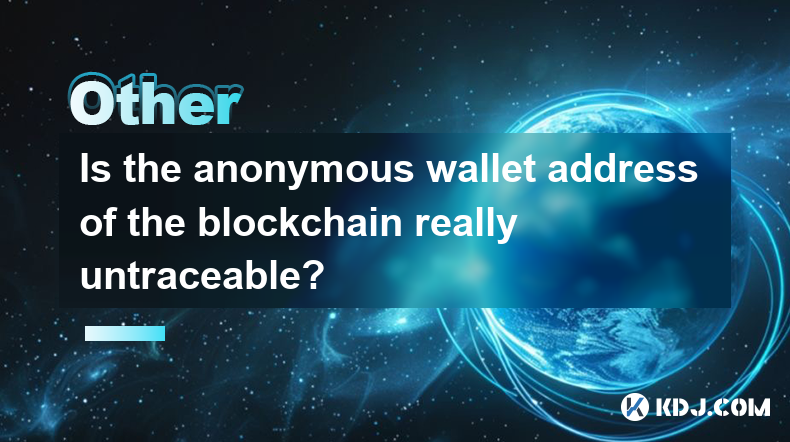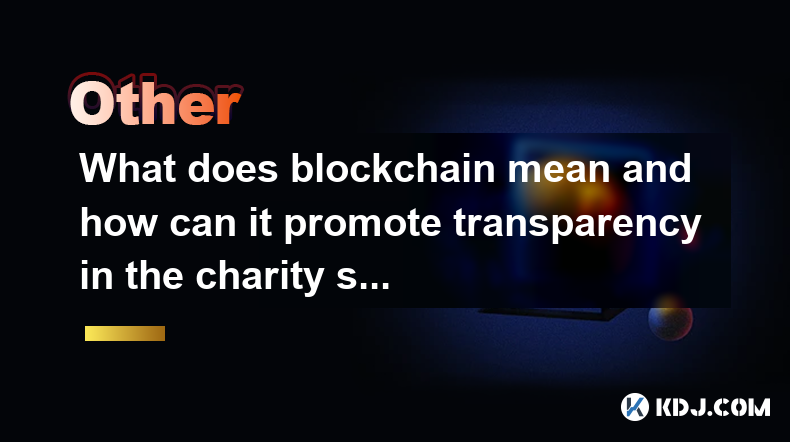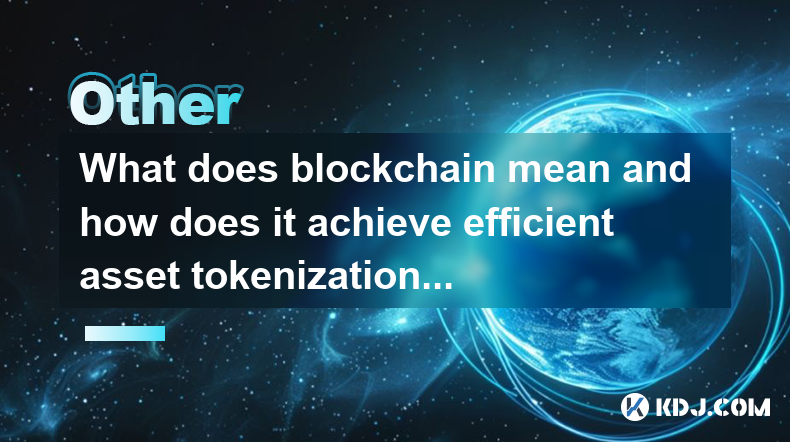-
 Bitcoin
Bitcoin $82,770.9885
-0.53% -
 Ethereum
Ethereum $1,811.0838
-0.62% -
 Tether USDt
Tether USDt $0.9996
-0.01% -
 XRP
XRP $2.0610
1.56% -
 BNB
BNB $591.5998
-0.12% -
 USDC
USDC $0.9999
0.00% -
 Solana
Solana $116.7637
-3.59% -
 Dogecoin
Dogecoin $0.1606
-2.58% -
 Cardano
Cardano $0.6491
0.00% -
 TRON
TRON $0.2375
1.32% -
 Toncoin
Toncoin $3.6204
-7.56% -
 UNUS SED LEO
UNUS SED LEO $9.4063
0.23% -
 Chainlink
Chainlink $12.8000
-2.19% -
 Stellar
Stellar $0.2605
1.01% -
 Avalanche
Avalanche $18.1124
-1.26% -
 Sui
Sui $2.2384
-2.51% -
 Shiba Inu
Shiba Inu $0.0...01223
0.65% -
 Hedera
Hedera $0.1627
0.30% -
 Polkadot
Polkadot $4.0538
1.44% -
 Litecoin
Litecoin $82.9722
0.02% -
 MANTRA
MANTRA $6.4051
3.36% -
 Bitcoin Cash
Bitcoin Cash $301.6530
1.88% -
 Bitget Token
Bitget Token $4.4826
-1.05% -
 Dai
Dai $1.0000
0.02% -
 Ethena USDe
Ethena USDe $0.9995
-0.02% -
 Monero
Monero $212.5474
-1.93% -
 Hyperliquid
Hyperliquid $11.6624
-5.49% -
 Pi
Pi $0.5680
-13.45% -
 Uniswap
Uniswap $5.8333
-1.59% -
 Aptos
Aptos $5.0533
-1.32%
Is the anonymous wallet address of the blockchain really untraceable?
Blockchain transactions are pseudonymous, not anonymous; using privacy tools can enhance privacy but not guarantee untraceability due to advanced tracing techniques.
Mar 29, 2025 at 08:21 pm

Delving into the Illusion of Anonymity on the Blockchain
The blockchain's touted anonymity is often misunderstood. While transactions are pseudonymous, meaning they are linked to addresses rather than identities, they are not truly untraceable. The assertion that a blockchain wallet address is completely anonymous is a simplification, often misleading. The level of traceability depends on various factors, including the type of wallet used, the user's behavior, and the sophistication of the investigative tools employed.
Many believe that using a cryptocurrency wallet without KYC (Know Your Customer) or AML (Anti-Money Laundering) requirements automatically guarantees anonymity. This is inaccurate. While such wallets don't directly link your identity to your address, your actions on the blockchain can still expose you. Every transaction leaves a digital footprint, creating a trail that can be followed under certain circumstances.
The concept of "mixing" or "tumbling" services aims to obfuscate the origin and destination of funds. These services combine multiple transactions to break the direct link between your wallet and the ultimate recipient. However, even these services are not foolproof. Law enforcement agencies and blockchain analysis firms possess sophisticated tools capable of tracing funds through these mixing services, especially with enough data points.
Understanding On-Chain Analysis and its Limitations
On-chain analysis is a powerful technique used to track cryptocurrency transactions. Analysts examine the blockchain data to identify patterns and connections between addresses. This analysis can reveal the flow of funds, even if addresses are not directly linked to identities. They look for patterns like repeated use of addresses, large transactions, or connections to known illicit activities.
This analysis is not infallible. Sophisticated users employ techniques to hinder traceability, such as using multiple wallets, employing mixers, and utilizing privacy-enhancing technologies. The effectiveness of these techniques varies. The cost and effort required for successful tracing increase proportionally to the level of obfuscation employed.
The complexity of on-chain analysis also plays a role. While powerful, it requires expertise and resources. Analyzing vast amounts of blockchain data can be time-consuming and computationally expensive, making it impractical for smaller investigations. The level of detail achievable also depends on the specific blockchain and its transparency.
The Role of Exchanges and KYC/AML Regulations
Centralized cryptocurrency exchanges, even those promoting privacy, often have KYC/AML requirements. These regulations necessitate users to provide identifying information, creating a link between their real-world identity and their exchange accounts. Even if you use an anonymous wallet, if you ever deposit or withdraw funds through an exchange, that link is established.
This link can be exploited by authorities to trace transactions back to the user's identity. Even if the wallet address itself is not directly linked to the user, the exchange's records can provide the necessary connection. This highlights the importance of understanding the limitations of anonymity when using centralized services.
The effectiveness of KYC/AML regulations varies across jurisdictions. Some countries have stricter regulations than others, resulting in different levels of traceability. The enforcement of these regulations also plays a crucial role in determining the success of tracing cryptocurrency transactions.
Steps to Enhance Privacy (But Not Guarantee Anonymity)
While complete anonymity is virtually impossible, users can take steps to enhance their privacy. However, it's crucial to understand that these steps only increase the difficulty of tracing, not eliminate it entirely.
Use a hardware wallet: These offer greater security than software wallets and reduce the risk of compromising your private keys.
Employ a privacy coin: Privacy coins like Monero utilize advanced cryptographic techniques to obscure transaction details. However, even these are not entirely untraceable.
Utilize a mixing service: While not foolproof, mixing services can make it harder to trace your transactions. Choose reputable services with a proven track record.
Use multiple wallets: Spreading your transactions across multiple wallets makes it harder to link them to a single identity.
Be mindful of your online behavior: Avoid linking your online activities to your cryptocurrency transactions.
These strategies can improve privacy, but they do not guarantee complete untraceability. Remember, blockchain data is persistent and can be analyzed using advanced techniques.
Frequently Asked Questions
Q: Are all blockchain wallet addresses traceable?
A: No, not all are easily traceable. The level of traceability depends on factors like the type of wallet, user behavior, and available investigative resources. While some addresses are more easily linked to individuals than others, complete untraceability is practically impossible.
Q: Can blockchain analysis reveal my identity?
A: Blockchain analysis can reveal transaction patterns and relationships between addresses, but it doesn't automatically reveal your identity. However, if you link your wallet address to your identity through exchanges or other means, it becomes much easier to trace.
Q: Do privacy coins offer complete anonymity?
A: No. Privacy coins enhance privacy, making tracing more difficult, but they do not guarantee complete untraceability. Sophisticated analysis techniques can still uncover transaction information.
Q: What is the difference between pseudonymous and anonymous?
A: Pseudonymous means your identity is not directly revealed, but transactions are linked to addresses. Anonymous would imply complete untraceability, which is not achievable on public blockchains.
Q: Can law enforcement agencies always trace cryptocurrency transactions?
A: Not always. Tracing transactions can be challenging, particularly if sophisticated privacy-enhancing techniques are used. However, law enforcement agencies have access to advanced tools and resources that significantly improve their chances of success. The feasibility of tracing is also highly dependent on the resources allocated to the investigation.
Disclaimer:info@kdj.com
The information provided is not trading advice. kdj.com does not assume any responsibility for any investments made based on the information provided in this article. Cryptocurrencies are highly volatile and it is highly recommended that you invest with caution after thorough research!
If you believe that the content used on this website infringes your copyright, please contact us immediately (info@kdj.com) and we will delete it promptly.
- Gold Exempt From New "Reciprocal" Tariffs
- 2025-04-04 06:35:12
- Time to Buy Aptos (APT) Cheap? This Chart Pattern Signals a 10% Move for the Price!
- 2025-04-04 06:35:12
- An Analyst Has Explained How Dogecoin Could Be at a Make-or-Break Level Right Now Based on a TA Chart Pattern
- 2025-04-04 06:30:12
- Micro Intelligence Company Strategy Has Purchased 22,048 Bitcoins Worth $1.92 Billion in a New Deal
- 2025-04-04 06:30:12
- BlockDAG's Beta Testnet Is Live— Aims to Achieve 15K TPS! Ethereum Price Falls 0.5% & ETC Dips 6.7%
- 2025-04-04 06:25:12
- title: New decentralized finance (DeFi) trading altcoin is surging after gaining support from the top US-based crypto exchange platform by volume
- 2025-04-04 06:25:12
Related knowledge

What are the future development trends of blockchain game development?
Apr 03,2025 at 05:00am
Blockchain technology has revolutionized various industries, and gaming is no exception. As we look to the future, several trends are set to shape the development of blockchain games. These trends not only promise to enhance the gaming experience but also to integrate blockchain technology more seamlessly into the gaming ecosystem. Let's explore these t...

What are the maintenance costs of blockchain system development?
Apr 03,2025 at 06:07pm
The maintenance costs of blockchain system development are multifaceted and depend on various factors. These costs can include technical maintenance, security updates, infrastructure expenses, and personnel costs. Understanding these elements is crucial for anyone planning to develop or maintain a blockchain system. Technical MaintenanceTechnical mainte...

What are the money-making opportunities in the application of blockchain in the medical industry?
Apr 03,2025 at 03:35am
The integration of blockchain technology into the medical industry presents a myriad of money-making opportunities that can revolutionize healthcare systems. Blockchain's inherent characteristics, such as transparency, security, and immutability, make it an ideal solution for various medical applications. By leveraging blockchain, companies can develop ...

What are the money-making opportunities when blockchain and artificial intelligence are combined?
Apr 04,2025 at 01:28am
The convergence of blockchain and artificial intelligence (AI) presents a myriad of money-making opportunities within the cryptocurrency circle. This fusion leverages the decentralized and secure nature of blockchain with the analytical prowess of AI, creating innovative solutions and platforms that can generate significant revenue. From enhancing tradi...

What does blockchain mean and how can it promote transparency in the charity sector?
Apr 03,2025 at 08:29pm
Blockchain technology is a decentralized, distributed ledger that records transactions across numerous computers. This ensures that the data is transparent and nearly impossible to alter retroactively. Essentially, blockchain serves as a digital ledger of all cryptocurrency transactions, enabling secure and direct exchanges without the need for intermed...

What does blockchain mean and how does it achieve efficient asset tokenization?
Apr 03,2025 at 07:57pm
Blockchain technology is a decentralized, distributed ledger that records transactions across numerous computers. It ensures that each transaction is secure, transparent, and immutable. The concept of blockchain was introduced with the launch of Bitcoin in 2009, but its applications have since expanded far beyond cryptocurrencies. At its core, blockchai...

What are the future development trends of blockchain game development?
Apr 03,2025 at 05:00am
Blockchain technology has revolutionized various industries, and gaming is no exception. As we look to the future, several trends are set to shape the development of blockchain games. These trends not only promise to enhance the gaming experience but also to integrate blockchain technology more seamlessly into the gaming ecosystem. Let's explore these t...

What are the maintenance costs of blockchain system development?
Apr 03,2025 at 06:07pm
The maintenance costs of blockchain system development are multifaceted and depend on various factors. These costs can include technical maintenance, security updates, infrastructure expenses, and personnel costs. Understanding these elements is crucial for anyone planning to develop or maintain a blockchain system. Technical MaintenanceTechnical mainte...

What are the money-making opportunities in the application of blockchain in the medical industry?
Apr 03,2025 at 03:35am
The integration of blockchain technology into the medical industry presents a myriad of money-making opportunities that can revolutionize healthcare systems. Blockchain's inherent characteristics, such as transparency, security, and immutability, make it an ideal solution for various medical applications. By leveraging blockchain, companies can develop ...

What are the money-making opportunities when blockchain and artificial intelligence are combined?
Apr 04,2025 at 01:28am
The convergence of blockchain and artificial intelligence (AI) presents a myriad of money-making opportunities within the cryptocurrency circle. This fusion leverages the decentralized and secure nature of blockchain with the analytical prowess of AI, creating innovative solutions and platforms that can generate significant revenue. From enhancing tradi...

What does blockchain mean and how can it promote transparency in the charity sector?
Apr 03,2025 at 08:29pm
Blockchain technology is a decentralized, distributed ledger that records transactions across numerous computers. This ensures that the data is transparent and nearly impossible to alter retroactively. Essentially, blockchain serves as a digital ledger of all cryptocurrency transactions, enabling secure and direct exchanges without the need for intermed...

What does blockchain mean and how does it achieve efficient asset tokenization?
Apr 03,2025 at 07:57pm
Blockchain technology is a decentralized, distributed ledger that records transactions across numerous computers. It ensures that each transaction is secure, transparent, and immutable. The concept of blockchain was introduced with the launch of Bitcoin in 2009, but its applications have since expanded far beyond cryptocurrencies. At its core, blockchai...
See all articles






















































































